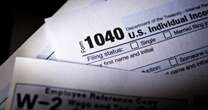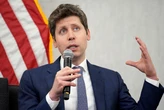Travel search company Skiplagged boasts that it can help you “find flights the airlines don’t want you to see,” using “loopholes in airfare pricing to save you money.”
That proposition hasn’t always sat well with the airlines. In fact, American Airlines recently won a $9.4 million federal jury verdict against the company, which highlights travel options called “skiplagged” fares (also called “hidden city” fares), where travelers book a multi-leg journey with an airline but only travel part of the way. Arcane airline pricing rules mean a traveler looking to go from, say, New York to San Francisco can sometimes counterintuitively find it cheaper to book a trip from New York to Seattle with a layover at SFO than simply booking the New York to San Francisco flight. Savvy travelers who spot such deals can book the multi-hop flight and quietly exit during the layover, though airlines often say that’s against their terms of service.
Skiplagged founder and CEO Aktarer Zaman says he discovered the trick around 2013, when he was exploring travel options for a move from New York to Seattle, with a potential California vacation along the way. Booking a trip to Seattle was indeed cheaper than booking a flight to San Francisco—even though the Seattle journey started with that same flight to the Bay.
“I looked into the details, literally the same exact flight, and it was like double the price,” Zaman says. “So that’s how I first discovered it, completely by accident.”
He soon built an early version of Skiplagged as a side project, initially just providing information about potential hidden city trips, which airlines naturally don’t promote. Within a couple of years, he saw the site getting more and more attention, and turned it into an actual business, which today helps users actually book the flights, charging a fee for certain bookings. While travelers can in theory find hidden-city flights on their own by searching potential city combinations and looking for an auspicious layover, many are willing to pay an extra fee to have Skiplagged automate the process. And the site can now also help find traditional fares and book discounted hotel rooms.
Still, what sets Skiplagged apart from other travel search engines is those hidden city fares that have raised the ire of American and, in the past, other airlines. A lawsuit brought by United was dismissed back in 2015 on procedural grounds, and the company resolved a suit filed by Southwest in 2021—like many travel sites, Skiplagged no longer shows Southwest fares at all, Zaman says.
‘We’re going to carry on’
Judge Mark T. Pittman, in a ruling in the American Airlines case, said Skiplagged’s practices seem “a little shady.” But he didn’t order Skiplagged to shut down.
To some extent, American found a loophole of its own: The $9.4 million jury award is for copyright infringement, based on Skiplagged’s unauthorized use of the airline’s logo in listing flight options, not the company’s core operations. Zaman says Skiplagged already pulled airline logos from the site about three months ago, so there’s no ongoing liability. Skiplagged made more than $20 million in revenue in 2023, according to court records, a figure confirmed by the company.
“Obviously having to pay some money is worse than paying no money,” Zaman says. “But as a business, we’re going to carry on.”
The jury found that Skiplagged’s use of American’s trademarks, as distinct from its copyright, was “likely to cause confusion as to source, affiliation, or sponsorship.” But jurors also determined it was a “nominative fair use,” a legal term for essentially discussing a brand name out of necessity without implying endorsement, which Zaman says means the company can keep referring to American by name in listing flights, even as American also essentially claimed victory in a statement.
“American is pleased the jury recognized that Skiplagged infringed its valuable trademarks and awarded $9.4 million in damages for copyright infringement,” an American spokesperson says. “This was an important next step in protecting American’s intellectual property and valuable brand.”
Perhaps most importantly for Skiplagged’s business model, the judge separately dismissed American’s claims for breach of contract and tortious interference with its contracts. He found that under various statutes of limitations, the airline waited too long after learning about what he called Skiplagged’s “somewhat dubious business model and practices” to file suit.
“Here, American got wind of Skiplagged’s stinky business practices,” wrote Judge Pittman, “but it waited a little too long to extinguish the stench via certain claims.”
‘Some airlines don’t like us’
Zaman says the notion that airlines generally don’t like his business is a bit exaggerated—Skiplagged lists tickets through numerous airlines that haven’t taken the company to court and has relationships with big travel companies, he points out.
“It kind of gives a perception that airlines don’t like us, but that’s not really the case,” he says. “Some airlines don’t like us, I guess you can say that.”
And customers do like that they can save, sometimes substantially, by using the service, Zaman says, pointing to users who’ve been able to book flights for family emergencies and other trips they otherwise might have struggled to afford.
Skiplagged does provide clear warnings in an FAQ sheet that travelers could potentially have issues if flights are changed due to weather or other issues, since airlines would rebook travelers to their final destinations without necessarily passing through the same layover stop. The company also advises travelers to try to stick to an under-the-seat carryon, since there’s always a chance larger bags could be checked at the gate to their listed final destinations, and warns customers not to use their frequent-flyer numbers, since aggrieved airlines could potentially cancel their miles.
“You might upset the airline, so don’t do this often,” the FAQ warns.
But Zaman says court testimony indicated that American doesn’t have any kind of “no-fly list” for hidden-city travelers and emphasizes that the vast majority of Skiplagged trips go as planned, with the company boasting a 99.7% success rate. And, he says, Skiplagged intends to continue to offer its services into the future.
“There’s nothing stopping us, and we’re motivated by the value we’re creating for consumers,” he says.







No comments